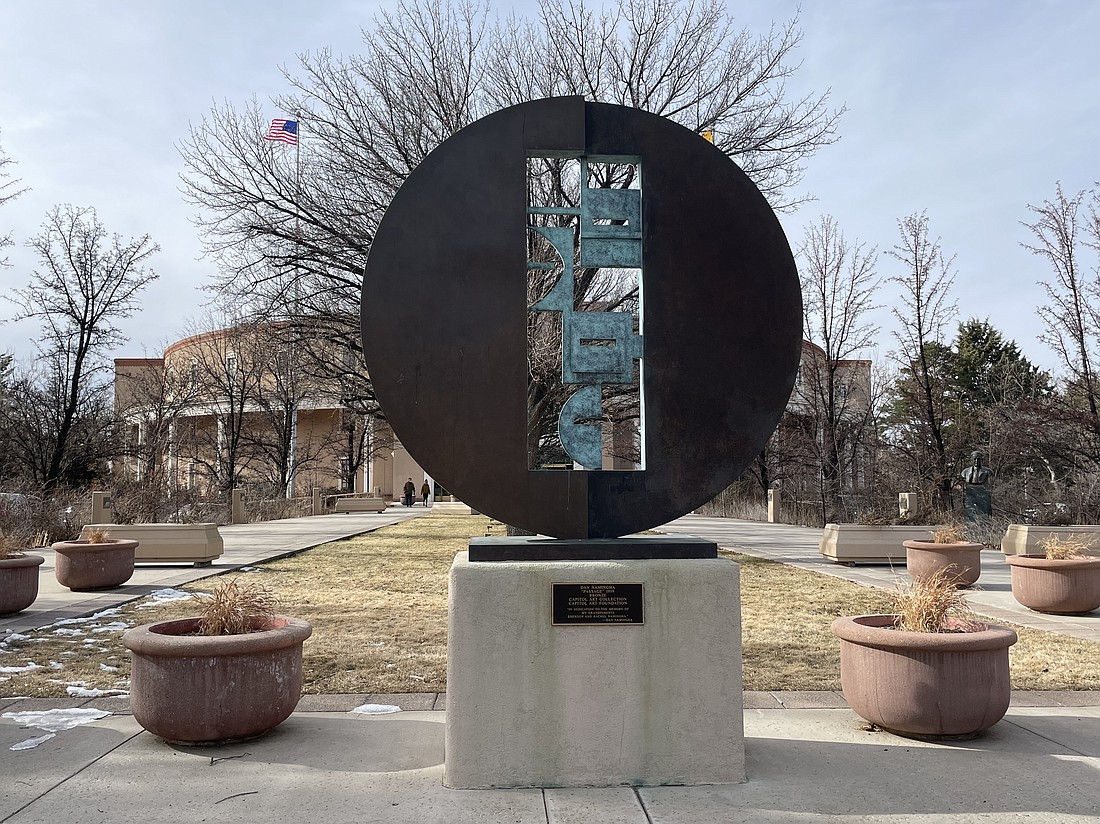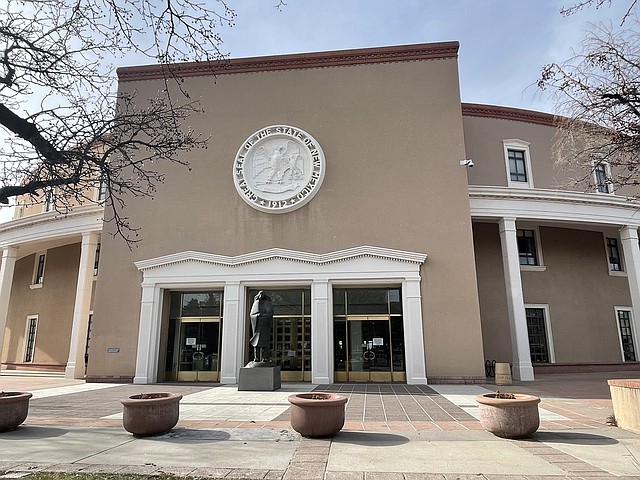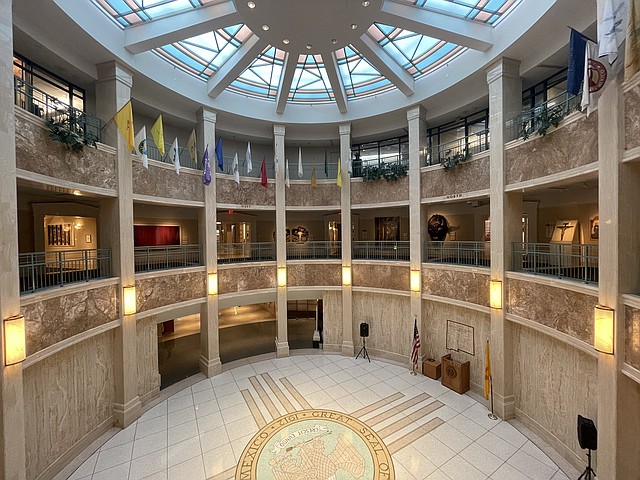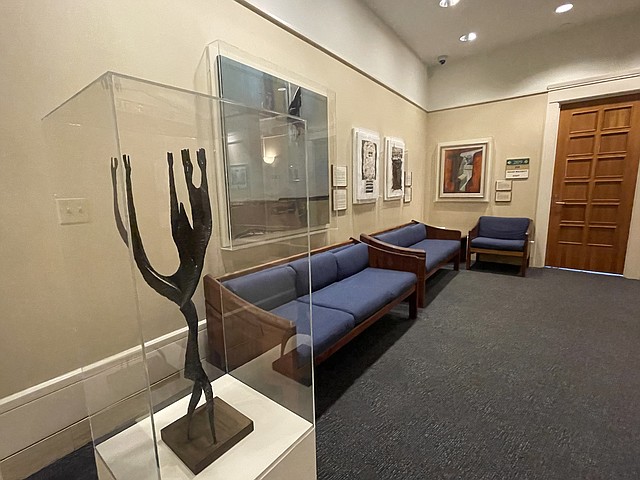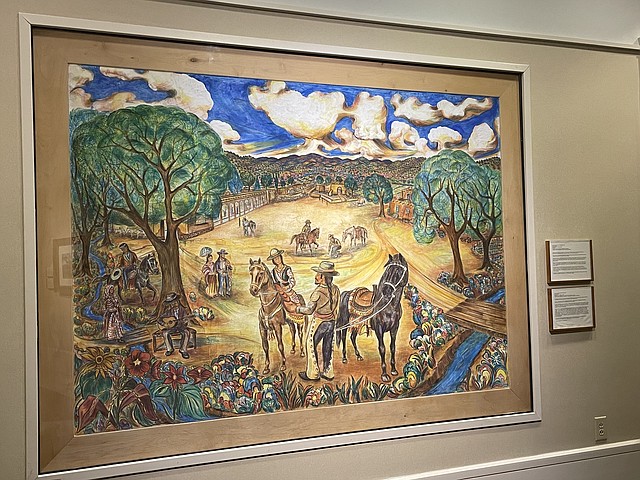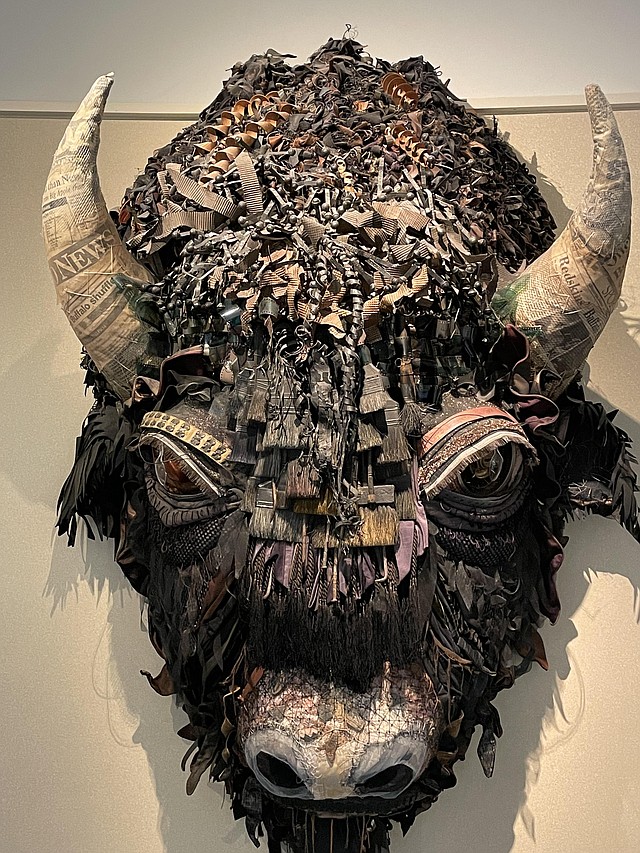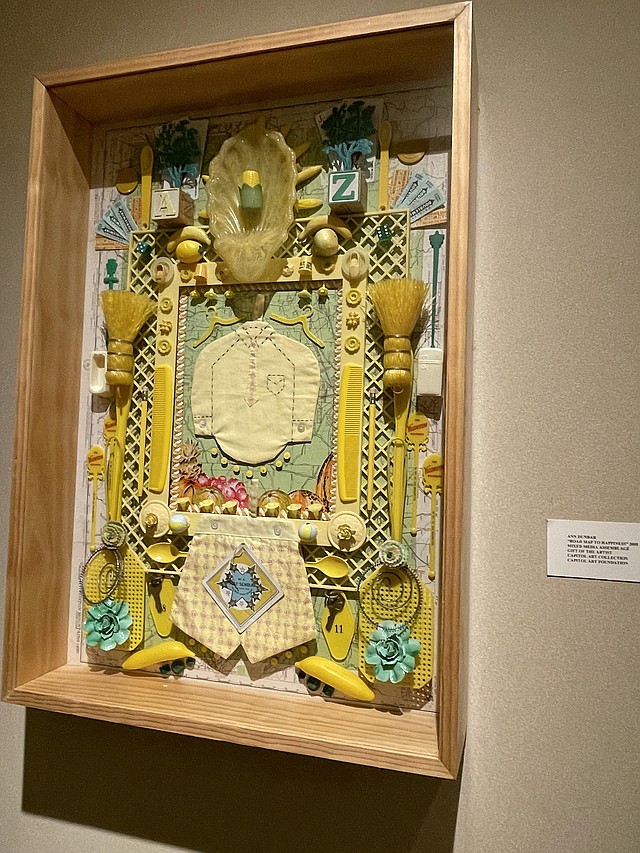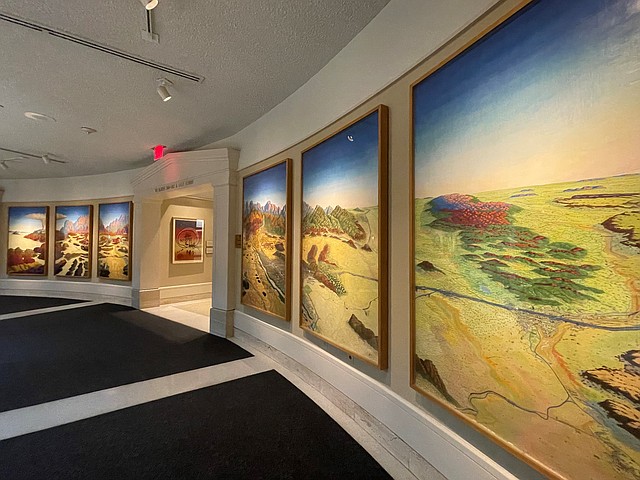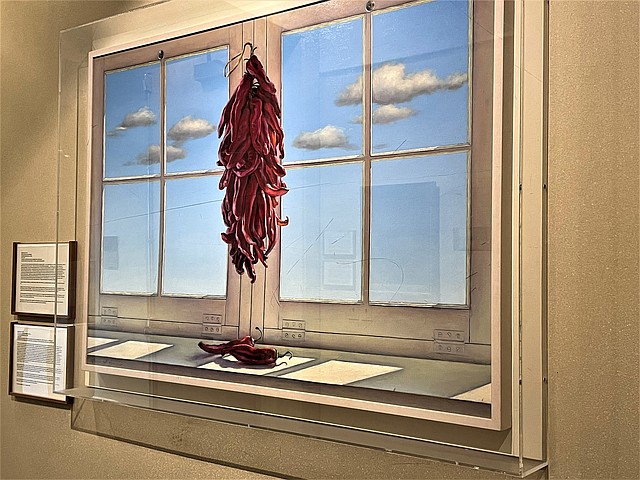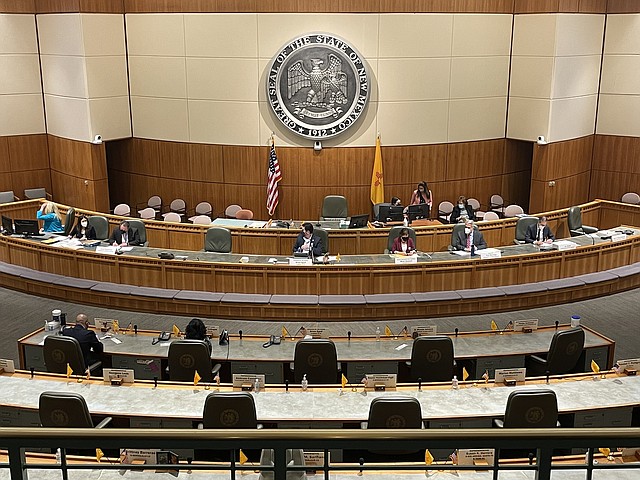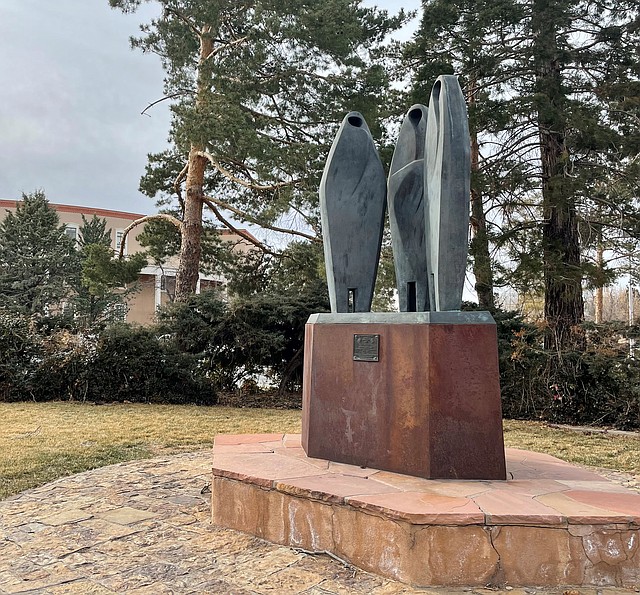Art doesn’t necessarily come to mind when you think of state capitol buildings. Typically, most people equate capitals with all things government and they envision an austere, staid environment. So, it’s a delightful surprise when visitors enter the “Roundhouse” in Santa Fe and discover a veritable art museum.
New Mexico’s State Capitol is referred to as the Roundhouse because of its circular structure. The building combines New Mexico Territorial style, Pueblo adobe architecture and Greek Revival elements and is the only round capitol in the country.
If you were able to view the Roundhouse from above, you would see that it resembles the Zia sun symbol (a circular sun with linear rays extending in four directions), which is also shown on the New Mexico state flag. This image originated at Zia Pueblo, where the people view four as an important number. It is embodied in the four directions of the earth, four seasons of the year, four times of day and the four phases of life.
Inside this unique building, you’ll find the central Rotunda, which rises sixty feet through the top three stories. On the Travertine marble floor is an eye-catching turquoise and brass mosaic depicting the New Mexico State Seal. And if you look up, the ceiling skylight of stained glass resembles a native American basket weave, symbolizing the sky and the earth.
As you stroll through the Roundhouse on your free, self-guided tour, you’ll be mesmerized by the artwork and this showcase of immense creativity. We have the Capitol Arts Collection to thank for the bounty of eye candy that bedecks the walls of this hallowed place. The foundation, which was created in 1991, started with only fourteen art pieces and seventeen furniture groupings. Today, there over six hundred pieces, including paintings, photography, works on paper, sculpture, mixed media, textiles, ceramics and glass works, as well as furniture.
Over five hundred contemporary, established and emerging New Mexico artists and artisans are represented and most of the pieces have been donated, or on loan. This incredible museum quality assemblage offers a beautiful glimpse of the Land of Enchantment and is currently valued at over six million dollars.
Each piece has a label noting the title and the artist, as well as some background about the artist and any information pertaining to the work itself. One of the more notable pieces is “Buffalo” by Holly Hughes. The three-dimensional behemoth is a magnet for visitors, who are fascinated by the various materials used in its construction.
Hughes emphasizes recycling and environmental awareness in her work and in “Buffalo,” she incorporates old paintbrushes, pottery shards, fishing reels, horseshoes and even news headlines taken from the 1992 Super Bowl. There’s symbolism behind the materials that ties into the history of the buffalo as an early art inspiration in man and its connection to Native Americans, among other themes.
Another mixed media piece is Ann Dunbar’s “Road Map to Happiness.” You’ll find combs, hangers, brooms, gum wrappers, blocks and even a sewing pattern for a shirt in this quirky assemblage.
Humor is at the heart of “The Tourist” by Janice Ortiz. The Cochiti Pueblo potter’s clay sculpture depicts a stereotypical visitor to New Mexico, wearing shorts and tee shorts, donning sunglasses and camera.
Santa Fe artist Frederico M. Vigil’s “Plaza of Santa Fe in the 1800s” is a lively fresco depicting an imaginary view of the Santa Fe Plaza centuries ago. Fresco is an ancient technique of painting used by many cultures including the indigenous peoples of the Southwest. It involves applying pigments on wet plaster. When the plaster dries, the painting becomes part of the wall.
It’s hard not to notice “We Trust in the Loyalty of Old Friends,” by Rob Rikoon. The series of large, colorful paintings encompasses landscapes of New Mexico and Eastern Arizona, including the Hopi and Navajo Reservations. Ancient dwellings at Chaco Canyon are shown next to scenes of the coal from mines being sent to the Four Corners Power Plant. Staggering beauty and devastating technologies exist side by side, in this powerful statement of how humans have had an enormous impact on nature. The informational placard mentions that twenty layers of paint were applied in the process of creating each piece.
Photography is also on the display. Delilah Montoya’s piece, “Jackie Chavez 2005,” for example, is a picture of the aforenamed former professional boxer from Albuquerque. Chavez sits confidently with her boxing gloves, staring directly and intently at the camera. Her message is clear: “Don’t mess with me!”
There are niches on each floor containing seating areas with furniture that are themselves pieces of art, each handmade. They are practical and decorative at the same time.
Don’t forget to make it up to the fourth floor for the Governor’s Gallery, where the art on display is rotated several times a year. The first exhibition featured paintings by internationally renowned artist, Georgia O’Keeffe. The artist called New Mexico home for nearly four decades.
On your walk through the building, you can also peek into the house and senate chambers from the public galleries. If the legislative session is in progress, you can get an inside look at government in action.
You’ll find additional art on display outside the Roundhouse in the Clay Buchanan Memorial Gardens. Abstract and figurative sculptures dot the high desert landscape – no conventional monuments in sight. Allan Houser’s bronze, “When Friends Meet” is a favorite of many visitors. It’s one of the most recognizable pieces from the famed Native American sculptor. Interspersed among the art are stately sequoias, olive trees, roses and various kinds of New Mexico flora that surround the campus. It’s a feast for the senses, no matter what time of year you visit.
